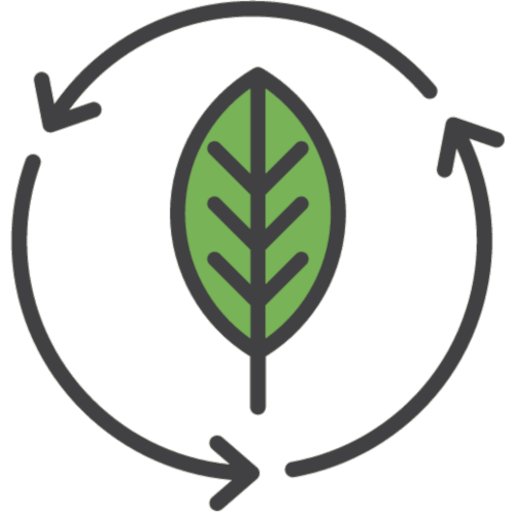There is nothing quite like the start of a new year to catalyze for us to reassess our lifestyles, our wellness, our aspirations, and our financial situations. At the beginning of 2023, a lot of people will be considering their finances, making plans, and saving money. This is always a great set of goals to have, but it is particularly important in the economies that are susceptible to inflation and unforeseen that we are witnessing all over Africa and the world.
Creating a budget is especially important. It is the most efficient method there is for keeping track of both income and expenses. Personal budgets are a useful tool for keeping track of one’s resources while working toward larger monetary objectives. Creating a budget can also provide you with additional opportunities to save money, cut down on your debt, and lead a more comfortable life. Your mental health may even improve as a result of it.
However, where exactly should you begin? To successfully create a budget, what questions do you need to answer? Here are some pointers that I’ve picked up over the years, not just in my role as an economics expert, but also as someone who maintains a budget and works in research cost analysis.
Acquire a General Understanding of the Current Economic Climate
It is of the utmost importance for individuals to educate themselves and stay current on the current state of the economic climate in their respective nations. Keep an eye on major innovations, such as free business registration, small-business growth funds, and the printing of new money notes.
You do not need to be a professional economist to do this, but you should keep an eye on these developments. What is the present rate of the currency exchange? How does the political climate currently stand, and which global factors, such as the price of crude oil, are at play here? You should also keep an eye on the rate of inflation and be aware of the trends in the field of employment.
This economic consciousness will prepare you to draft your budget, and you’ll have an understanding of when external forces mean it’s time to reconsider your plans. Having a personal budget is an important step in managing your finances.
Take a Look at the Sources of Your Income
The capacity to bring in money is necessary for maintaining one’s standard of living. The foundation of sound financial planning is the existence of reliable sources of income. Included below are some essential questions you need to ask about your earnings and the potential ways in which you can budget with them:
- How much money am I making right now?
- How do I spend the money that I earn?
- Given my current income, do I have the ability to put money away?
- What percentage of my income do I put away in the form of savings, and what percentage do I spend?
- Do I have the potential to increase what I make beyond this?
- How can I increase the amount of money I make?
Your responses may assist you in locating areas of weakness or unrealized potential. For those who have income that is erratic or unpredictable, taking into account the time gap in their earnings is an important component of an efficient budget. The time gap is the period in which they do not earn income. In addition, everyone ought to make provisions in their financial plans for unpredictability, such as health problems, social commitments, inflation, unemployment, recession, and price shocks.
Reassess Your Expenditures
Expenses can generally be broken down into two categories: “variable” and “fixed.”
Housing, food, transportation, medical costs, electricity, and other utility costs, personal hygiene products, and clothing are examples of reoccurring fixed expenses. Investments in real estate or other interest-bearing assets, as well as the purchase of equipment, are examples of variable expenses. Variable expenses are more long-term in nature and occur less frequently.
The primary purpose of reviewing our expenditures is to investigate and, if possible, make adjustments to our typical patterns of spending. When analyzing our spending, we can take into consideration things like the following:
- How much of my income goes toward my savings versus how much goes toward my spending? This is the amount of money I spend each month in comparison to how much I put away each month.
- What are my typical costs each month?
- Which of my expenses are considered to be fixed, capital, or investments?
- What are my out-of-the-ordinary costs that require some sort of adjustment?
- Have there been any unanticipated or out-of-the-ordinary costs?
A thoughtful response to the concerns raised above provides an opportunity to reconsider the pattern and course of our expenditures. For instance, expenses such as overspending, those that were not planned, or those that were unexpected can be identified. This may result in a reorganization of the available resources that is both optimal and efficient.
Establish a Stable Financial Foundation by Putting Money Aside
Because of their ability to provide for immediate needs and open up opportunities for investments, savings have been called financial stabilizers. This is because they can both.
Naturally, an individual’s savings become more valuable when their rate of growth is higher than the rate of inflation. The worth of savings will decrease as a result of inflation. For example, a sum of R12 0000 saved to buy an autorickshaw today may be unattainable to do so in two months with an inflation rate of 10%, when the cost of the tricycle will rise to R 14 0000. When there is deflation, the situation is exactly the opposite of what it was before.
Because of this, it is recommended to increase the value of savings by making investments in assets that yield interest, such as equities, shares, bonds, microfinance, and manufacturing. That does not mean that there are never any opportunities to save money. The majority of people who bring in an income live paycheck to paycheck and do not factor savings into their financial plans. The harsh realities of the economy can also make it difficult, and at times even appear to be impossible, to save money.
However, it is not unattainable: it is possible to save in small amounts by donating collections, co – operative schemes, or microfinance affiliations on a daily, weekly, or monthly basis. For example, a point-of-sale company in Nigeria can enable a daily contribution of 500 nairas (1.13 USD), which, when multiplied by the number of working days in a month (25), results in an average savings of 12,500 nails (28.18 USD).
The introduction of the agent banking system in 2013 by the Central Bank of Nigeria marked the beginning of the point-of-sale business in Nigeria. A POS network operator is the entity that a POS agent works through to operate and process transactions. Banks, microfinance banks, and financial technology companies are all examples of providers of such services.
Operate a Versatile Budget
After you have created your budget, it is important to keep in mind that it isn’t fixed in advance. It must be adaptable in case anything in your life changes. For example, money set aside to purchase a car might be better served as an investment in a potentially lucrative business venture, such as the purchase of shares of stock through public offerings or private placements in multi-national corporations such as Nestle or Unilever.
Additionally, we may need to spend a portion of our savings to pay for career progression programs or medical emergencies. Overall, budgeting ought to be sufficient to allow for unforeseen circumstances, particularly in cases where attending to the immediate matter at hand will ultimately result in a greater good.





